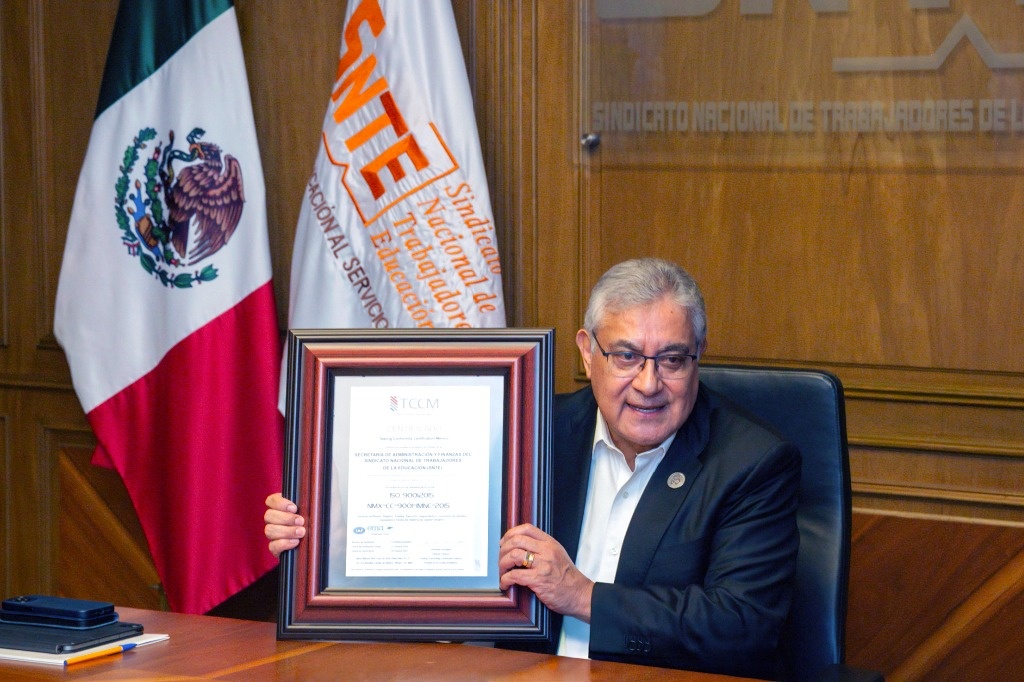Lima. The presidents of the United States and China warned this Friday that the world will enter an era of changes
y turbulence
before the return of Donald Trump, within the framework of the Asia-Pacific summit taking place in Lima.
The leaders of the two largest economies in the world, Joe Biden and Xi Jinping, set off the alarms before the last face-to-face meeting they will hold this Saturday, before the Republican magnate’s return to the White House in January.
In a speech read to business executives by Chinese Commerce Minister Wang Wentao at the APEC CEO Summit on Friday, Xi said economic globalization faces countercurrents
.
In his message, Xi called for promoting people-centered economic globalization and making efforts to maintain stable, fluid industrial and supply chains and promote a governance system that better reflects the new realities of the global economic landscape and continuously strengthens representation and voice of the Global South.
For his part, Biden said that we are facing a moment of significant political change
at the end of his last meeting with the leaders of Japan and South Korea in Lima.
Trump’s return is at the center of concerns, after he threatened to raise tariffs on all exports to the United States, in the case of China up to 60 percent and in that of its neighbor Mexico and main trading partner of 25 percent.
In his first term, the Republican fueled the trade war between the two superpowers, and his campaign promise raises fears that the dispute will deepen. This would be a serious blow to the 21 economies of the Asia Pacific Cooperation Forum (APEC), which represents 60 percent of global gross domestic product (GDP) and more than 40 percent of world trade.
The APEC summit was already the scene of a first confrontation between Washington and Beijing, after the inauguration on Thursday of the Chancay megaport, China’s first in South America.
The work, in which Beijing will invest a total of 3.5 billion dollars, will shorten maritime transport between China and Peru by 10 days. For his part, the White House special envoy for Latin America, Brian Nichols, called on Latin American countries to guarantee that the Asian giant’s investment respects local laws
and protect human rights and the environment
.
The APEC summit in Lima was also attended by the Prime Minister of Canada, Justin Trudeau; the president of Indonesia, Prabowo Subianto; Japanese Prime Minister Shigeru Ishiba and Australian Prime Minister Anthony Albanese, among others.
APEC is one of the last forums Biden attends before leaving office, and White House officials insist that his presence, as well as his subsequent visit to Brazil for the Group of 20 summit next week, will be substantial, with conversations focused on climate issues, global infrastructure and the fight against drug trafficking.
!function(f,b,e,v,n,t,s)
{if(f.fbq)return;n=f.fbq=function(){n.callMethod?
n.callMethod.apply(n,arguments):n.queue.push(arguments)};
if(!f._fbq)f._fbq=n;n.push=n;n.loaded=!0;n.version=’2.0′;
n.queue=[];t=b.createElement(e);t.async=!0;
t.src=v;s=b.getElementsByTagName(e)[0];
s.parentNode.insertBefore(t,s)}(window, document,’script’,
‘
fbq(‘init’, ‘133913093805922’);
fbq(‘track’, ‘PageView’);
fbq(‘track’, ‘Contact’);
fbq(‘track’, ‘Donate’);
fbq(‘track’, ‘FindLocation’);
fbq(‘track’, ‘Lead’);
fbq(‘track’, ‘Search’);
fbq(‘track’, ‘Subscribe’, {value: ‘0.00’, currency: ‘MXN’, predicted_ltv: ‘0.00’});
fbq(‘track’, ‘ViewContent’);
#warn #turbulence #Trumps #return
–
How will the return of Trump affect US-China relations and their impact on global trade dynamics?
Editor: Good morning, ladies and gentlemen. Thank you for joining us today. We’re discussing the upcoming changes and turbulence in the global economic landscape with the return of former US President Donald Trump and the ongoing tensions between the US and China ahead of the APEC summit. To help us make sense of these issues, we have with us two esteemed guests: Professor John Smith, an expert on international relations and trade policy, and Ms. Stephanie Lee, a prominent business leader in the Asia-Pacific region.
Professor Smith, would you like to start by sharing your insights on the potential impact of Trump’s return on global trade and economic cooperation?
Professor Smith: Certainly. The return of Trump poses a significant challenge to the current global trade system, which has experienced relative stability under President Biden’s administration. Trump’s protectionist policies, including increased tariffs and threats of trade wars, could disrupt supply chains and lead to a surge in trade tensions. This could hurt economies, especially those in the Asia-Pacific region that rely heavily on trade with the US and China. The APEC summit is an important venue for discussing these issues, but it remains to be seen whether the participating countries can reach a consensus on how to address them.
Editor: Ms. Lee, how do you think businesses in the Asia-Pacific region are preparing for these potential changes?
Ms. Lee: Businesses in the region are bracing for increased uncertainty and volatility. Many are already diversifying their supply chains and exploring new markets to mitigate potential risks. However, this process takes time and resources, so we may see some disruptions in the short term. It’s crucial for governments to work together to ensure smooth trade flows and promote economic stability. This starts with strengthening the rules-based multilateral trading system and addressing non-tariff barriers that hamper trade and investment.
Editor: What role do you see for the APEC summit in addressing these challenges, Professor Smith?
Professor Smith: The APEC summit provides an opportunity for dialogue among key economic players in the region. However, it remains to be seen whether the US and China can find common


